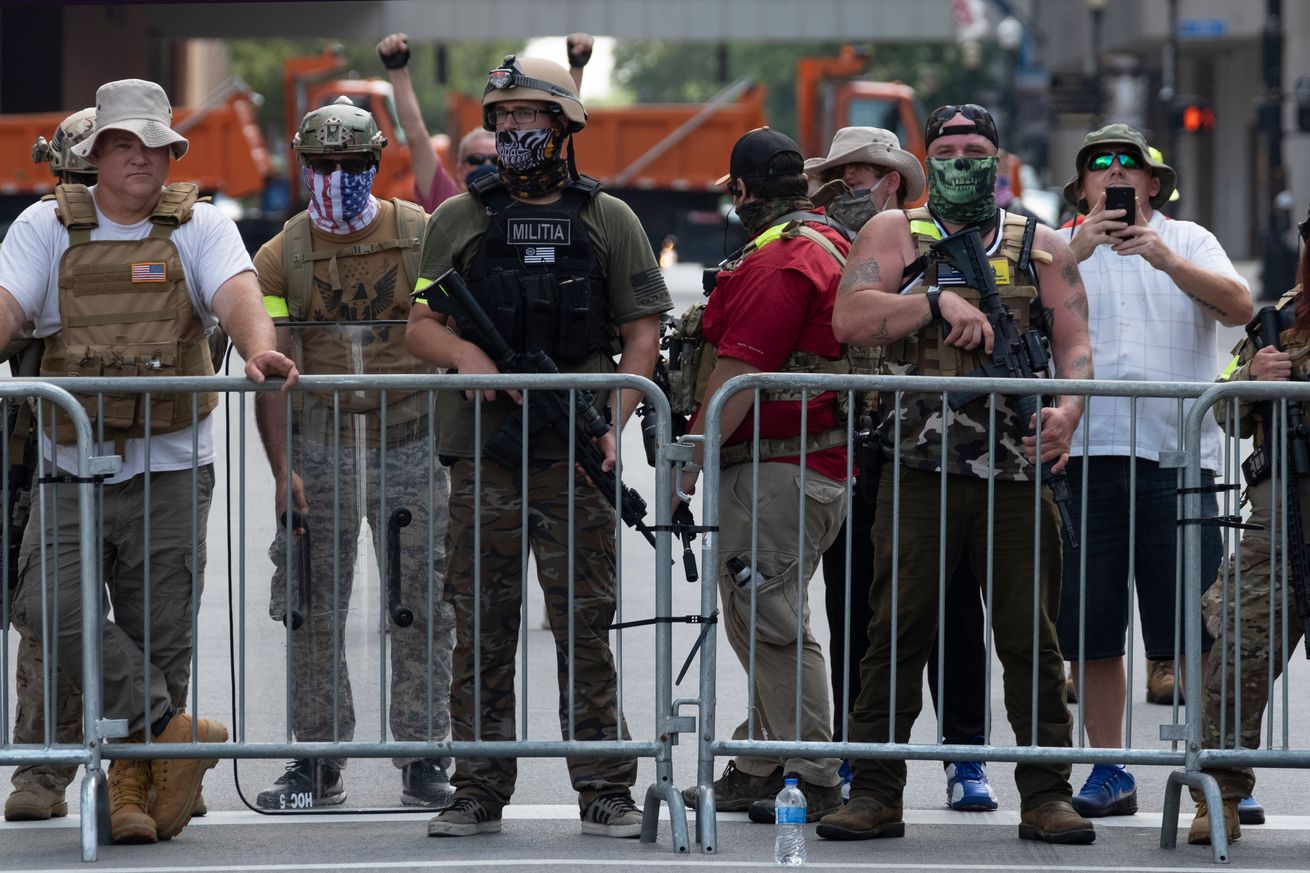
Facebook has placed at least 986 groups on a private list of banned “militarized social movements,” according to internal Facebook documents published by The Intercept. The documents hint at the scale of militia organizing on Facebook — something the company cracked down on in August of 2020.
Militarized social movements are one part of Facebook’s larger “dangerous individuals and organizations” list, which The Intercept published a snapshot of in its entirety. The term refers to armed groups that promote armed conflict, as well as groups that support violence or looting at protests; in practice, it’s apparently composed largely of right-wing militias with some left-wing, anarchist, or generally anti-government organizations.
Facebook’s “dangerous individuals” list also includes white supremacist bands, hate groups like the Ku Klux Klan, and branches of Al Qaeda and other global terrorist organizations. All are banned from maintaining pages, groups, or profiles on the service. Beyond that, the categories are sorted into tiers. Tier 1 includes hate and terror groups, and Facebook users can’t express praise or support for them in any form. Tier 2 includes “violent non-state actors” like armed rebels that can only be praised for nonviolent activities. Militarized social movements are designated as Tier 3, which don’t have comparable restrictions on how users discuss them.
Facebook noted in October of 2020 that it had identified 600 militarized social movements and removed around 2,400 pages and 14,200 groups maintained by them. The company also said it had removed 1,700 pages and 5,600 groups associated with QAnon — which is designated a militarized social movement but is not an organized group.
As The Intercept notes, the group designations can be fuzzy. One subset of the violent boogaloo movement, for instance, is classified as a Tier 1 terrorist organization, while the larger movement is a militarized social movement. The designation also includes news outlets like the anarchist site It’s Going Down — which could theoretically have been grouped under the umbrella of “supporting violent acts amid protests” but is listed as an “armed militia group.”
Facebook has been criticized for both overly lax and overly punitive enforcement. But most recently, it’s come under general scrutiny for not releasing details about its operations to outside researchers or policymakers, something that makes it more difficult to evaluate its moderation strategy.
In statements to The Verge, Facebook said it had not previously released the list because publishing too many details might compromise the effectiveness of moderation.
“This is an adversarial space, so we try to be as transparent as possible while also prioritizing security, limiting legal risks, and preventing opportunities for groups to get around our rules,” said counterterrorism and dangerous organizations policy director Brian Fishman.
